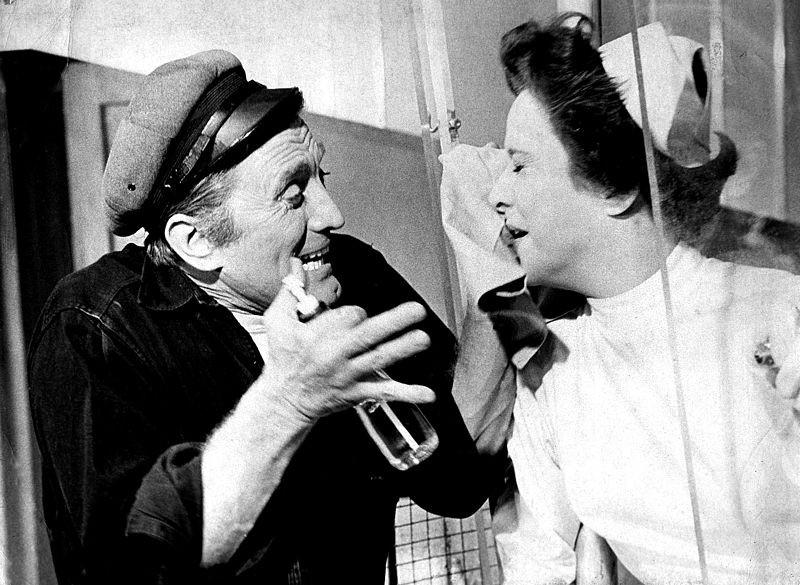The Loft Cinema and the University of Arizona’s Care, Health and Society Program co-presented the timeless classic “One Flew Over the Cuckoo’s Nest” (1975) Feb. 7. Following the film, Dr. Francisco Moreno, associate vice president of Diversity and Inclusion, and Dr. H. Clarke Romans, executive director of the National Alliance on Mental Illness Southern Arizona, held a panel discussion on mental illness.
Dr. Terrence Hill, director of the Care, Health and Society Program, organized the event and invited Moreno and Romans to speak. He also submitted a list of possible films to The Loft, with “One Flew Over the Cuckoo’s Nest” being the final pick.
“This is a classic film.” Hill said. “There is a reason people are still watching it. There is a reason The Loft is still willing to screen it. … Critical films like this are always relevant.”
The film is based on Ken Kesey’s 1962 counterculture novel of the same name. Released in 1975, the film version was met with wide critical acclaim and brought depictions of mental illness to a larger audience.
The psychiatric institute depicted in the film is notoriously hellish. However, conditions have improved since the release of the film.
“Some aspects [of the film] I think are outdated because I don’t think Nurse Ratchets exist very prevalently in mental institutions,” Romans said. “I think that, in academic institutions, stigma is still very much alive and well.”
RELATED: UA’s Lunar and Planetary Laboratory showcase an out-of-this-world art exhibit
After the film, Hill hosted a panel where Moreno and Romans discussed representation of mental illness in film. They also spoke about the stigmatization of mental illness in everyday life.
“Stigma remains a very large issue,” Moreno said. “Mental health, mental illness are still vastly misunderstood. We do not have the philosophy of treatment that we had 55 years ago … but a lot of the challenges they had then, we still have now.”
By speaking openly about mental illness, the panel helped facilitate a discussion on a subject that tends to be avoided in daily life.
“The goal of the panel is to educate our students and the broader community about important issues in health care,” Hill said. “This is a unique opportunity for our students and the community to process the diverse and critical reflections on critical mental health issues.”
During the panel, audience members asked questions ranging from depictions of mental illness in film to addiction as it relates to mental illness.
RELATED: Anything but a Drag
“One of the most important things that people can do is get informed,” Moreno said. “We have a tendency to keep biases and sometimes highly stigmatizing views that influence behaviors like getting the right kinds of treatments. So educating ourselves has to be step number one.”
Follow Vanessa Ontiveros on Twitter









